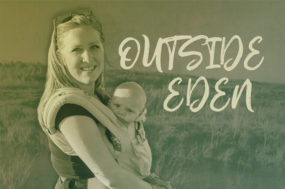The options had been to do it over, or strike over a “c” that was supposed to be an “e,” or use the trusty eraser and then hope the spot on the corrected document didn’t look too shabby, or paint “white-out” over the errant character.
The correcting ribbon amounted to a ribbon that was black and messy on the bottom, and white and chalky on the top. With the correcting ribbon, all one had to do was flip the lever to lift the ribbon-holder from “normal” to “correct” and then strike the incorrect letter again.
That, at least when the ribbon was new, would produce a white letter that was never the same shade of white as the paper one was using. Then the user would make a second attempt at placing the correct letter in its place on the document.
Back in the heyday of the typewriter, the office boy who was willing to change the ribbon on typewriters was the most popular guy to the secretarial pool.
On my typewriter, the correcting part of the ribbon was prone to give up the ghost before the black part. I took a typing class in high school – with the assumption that typing school reports would be more legible and less tedious than writing them out longhand. That still holds true.
“Cut” and “paste” used to be real, literal terms used when formatting an article. To move a paragraph when assembling a story, the paper was literally cut with scissors and then pasted back together on another sheet of paper. Most of the civilized world was overwhelmed when the word processor, and finally the computer with such niceties as “spell-check,” became the norm.
Now, should I type in “thier” instead of “their,” the spell-check catches it and corrects it without any input from me. If I decide I need to add a paragraph or a sentence in the middle of a page, I just shuffle the words around, and when it prints, it appears as though I wrote it perfect on the first try. If I make a change I don’t like, there is an “undo” function I can use.
Too bad that life has not progressed as well. If there was an “undo” or “delete” or “backspace” function connected to other activities in life, guess what? I’d still have all 10 fingers.
Actions in the real world have consequences.
In the neighboring community, a fellow was cutting a pipe with a grinder. Sparks from the grinder caused a fire in combustible materials nearby. Before it could be controlled, it spread to the area where propane tanks were stored, some being vented.
One of these exploded in such a manner that the body of the tank flew more than 1,000 feet and imbedded itself in a haystack in the middle of a field of haystacks. Estimates are that 11,000 tons of hay burned. The miracle of that event was that no one was injured.
Some time back, I drove a truck and low-boy trailer into another state to haul back a loader. It had been purchased at salvage price, and the new owner was sure he could repair it and get many years of good use out of it.
The pick-up spot was a sawmill yard. When I arrived, I was informed that before I would be allowed to drive the truck into the yard, I had to view a safety video and then sign a paper stating I had seen and understood it.
I moved the truck into position for loading. The loader did not run and had to be lifted onto the trailer by another machine. The crew invited me to their safety meeting. Since this was not something they did every day, they had to have a discussion, with notes taken, as to what could possibly go wrong and how they would prevent injuries if anything that could go wrong did go wrong.
I was directed to stand about 100 feet away while they loaded the loader on my trailer. When it was positioned without incident, I was asked to come and see if it was on my trailer as I wanted it. It was. There were no injuries, and there was no equipment breakage.
Most of life has no “re-do” option. Once the hay has been baled too wet, it can’t be re-baled the following day when it is drier. When we speak in anger, or when we act hastily without considering the dangers, we are back to using a manual typewriter. No matter what we do to correct the error, it won’t look like it should.
Apologies can save relationships, but it’s a lot less hassle to not do things we need to apologize for. The fire department is wonderful, but it’s best if you don’t need to call them. Emergency rooms at hospitals are wonderful places, but life is better if you don’t need to use one. FG










